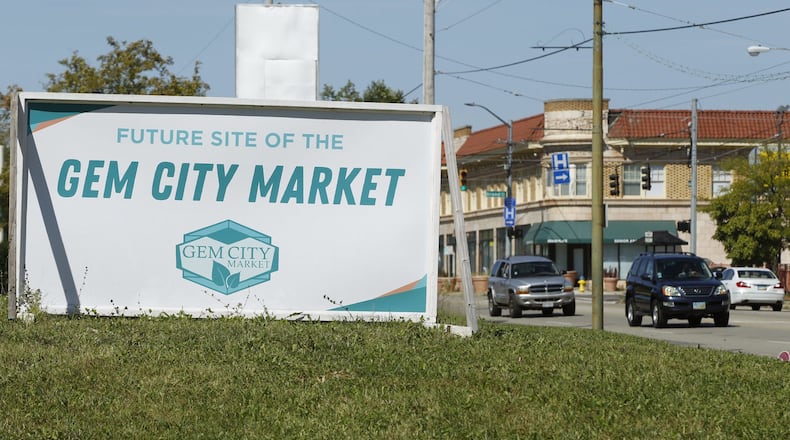Market organizers learned Wednesday, June 12, that the U.S. Department of Housing and Urban Development approved Greater Dayton Premier Management’s request that $997,000 in unused funds from a grant be reallocated for the project.
"This is a huge step forward," said Klein, the executive director of CO-OP Dayton, a non-profit working on the Gem City Market program.
The funds from the Hope VI Program were originally intended for a community center, but sat unused since the 1990s, Klein said.
There are 300 public housing units near the market to be located in the 300 and 400 block of Salem Avenue, she said.
The co-op store will offer affordable, specialty, local and organic products as well as fresh produce and meats and “kitchen staples,” organizers have said.
Klein said it will also include meeting rooms, a teaching kitchen and community outdoor space.
MORE: Lots of color, lots of windows: How Gem City Market will light up northwest Dayton
“The store will be more than just a store it will be a place for the community to gather,” Klein sad.
The reallocation was supported by both U.S. senators Rob Portman and Sherrod Brown who sent letters to HUD, Klein said.
The funds will be directed to the market through the Greater Dayton Premier Management and used for site work and to purchase certain equipment and property.
A message seeking comment was left for Greater Dayton Premier Management Executive Director Jennifer Heapy.
As part of the agreement, Klein said discounted memberships to the market will be offered to people who live in public housing and meeting spaces and certain classes will be available to them.
>> TORNADO RECOVERY: Sporty’s Taphouse in former Barnsider space bounces back from storm
A representative from public housing will also be on the market’s board.
The market surpassed its 2,000 member goal in March. Money from memberships will be used for the market's operation.
>> Tiki bar dreams and co-oping schemes: Here is what to know about Daytonian of the Week Lela Klein
About $4 million was raised from philanthropic sources as well as state, city and county grants, Klein said.
She said it is hoped that the remaining $1 million needed for construction is expected to come from New Market Tax Credits.
Organizers initially estimated that $3.9 million was needed for the project, but Klein said construction costs have increased significantly since the project was first announced publicly in 2017.
“We will hire a general contractor this summer,” Klein said.
About the Author
